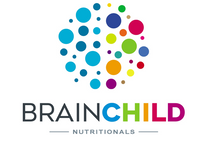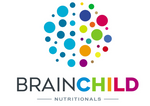The Natural Supplements That Support Children With ADHD

Over the past few years parents, along with their physicians, have been seeking out the best natural supplements for people with ADHD. Around 6.4 million children, ranging from the ages of 4 -17 years of age, at some point in their lives been diagnosed by medical professionals, as having Attention Deficit Hyperactivity Disorder. These figures were taken from a study that was completed in 2011 by the Centers For Disease Control and Prevention.
In many cases these children were given psychotropic drugs as means to improve ADHD symptoms, like hyperactivity and impulsivity. The issue here is that, while the medications may have been successful in rectifying short-term issues, there were consequences and risks involved in using these drugs for longer periods. It’s no surprise that parents all over the world are looking for more natural alternatives in treating ADHD.

Does ADHD Medication Work?
A professor of psychology by the name of L. Alan Sroufe wrote a piece that was published in the New York Times. In this article, Sroufe highlighted the use of such drugs, their effectiveness, and appeal to college students. The drugs themselves act by increasing their short term concentration which is desirable for studying and taking exams. However, there have been no real studies to date that prove any long term benefits of using these drugs for ADHD where the areas of behavior, relationship, and performance are concerned.
In truth, drugs have shown to be not very practical for long periods of use. These medications can cause negative side effects such as addiction and stunting one’s growth. For instance, Ritalin has been labeled, by the DEA, as a “Schedule II” drug. What this means is that it is one of the prescription medications that are extremely likely to be abused.

Natural Supplements for ADHD Child
Many parents, along with some health care practitioners, are now seeking natural alternatives for ADHD due to the growing concern and awareness of the side effects of these drugs and their level efficiency. For example, there have been studies that prove certain dietary supplements can have a positive effect where ADHD symptoms are concerned. The three that stand out are vitamin B6, magnesium, and Omega-3 fatty acids. Keep in mind that before adding or changing any part of your child's diet, to consult with a doctor or health care worker to be sure the change is appropriate.
It is also believed that a deficiency of certain minerals and vitamins may contribute to ADHD symptoms. For example, a mild case of deficiency in magnesium is thought have effects similar to those in ADHD children. Some of these symptoms include a decreased attention span, mental confusion, and irritability. When a number of children with ADHD, who also had a magnesium deficiency, were given magnesium supplements, a marked difference in behavior was noted, as opposed to the group of children given a placebo.

The Studies
A B6 pyridoxine study was also done and showed to be quite effective, more so than Ritalin, in helping to curb hyperactive behavior in children with ADHD. The chemicals that are affected in ADHD children are dopamine, serotonin, and morepinephrine. And these require a good amount of B6 for the body to efficiently produce them, making this a main factor in this study.
Other studies focusing on natural alternatives in helping with ADHD have seen positive indications with Omega-3 fatty acids. These can be found to occur naturally in such foods as fish, walnuts, flaxseed, and legumes. Omega-3 falls under the category of polyunsaturated, or “good” fats. Fatty acids such as these play a very large part in assisting the normal functioning of the brain, partly by improving how signals are transmitted between neurons.
Research shows that there were much lower amounts of Omega-3, especially a component called DHA (docosahexaenoic acid). DHA is extremely important to assist in the development of brain function and motor neural, perceptual, sensory, and cognitive systems. It was shown that deficiencies of Omega-3 corresponded with the following behavioral problems; anxiety, hyperactivity, temper tantrums, conduct disorder, sleeplessness, impulsivity, and problems with learning.
In Australia, at the Adelaide University, a study was conducted using 130 children who had ADHD. All were between the ages of 7-12. They were given Omega-3 fish oil capsules daily with dosages being 560 milligrams. The results were quite astounding. By 3 months time they were seeing behavioral improvements. In 7 months time they found that these children appeared less restless, had an improved attention span and concentration, and were showing positive progress with their school work and studies. It was also noted that, once the study had stopped, there was a continuation of noticeable improvements which suggested that Omega-3 fish oils could have a longer term effect too.

The Natural Supplements That Support Children With ADHD
If you have a child who is suffering from ADHD symptoms, you may wish to consider the future impact of giving them drugs such as Ritalin. While this may have the short term affects desired, it has been shown to be rather useless as a long term option. It was pointed out by Professor Sroufe that having a child on these drugs was not helping the actual cause that was challenging their development.
The conditions themselves had not been changed through medications such as Ritalin. He further believed that by medicating children in such a way, on such a large scale, was just falling into the social belief that every challenging problem could be rectified by taking a pill. In the end, long term detrimental effects could cause complications for children by looking for fast, easy solutions to what is a very complex issue and does a great disservice to the child with ADHD.
Our ADHD Flexi Kit
This is why at BrainChild Nutritionals we have developed the ADHD Flexi Kit which include all of those crucial vitamins, minerals,





